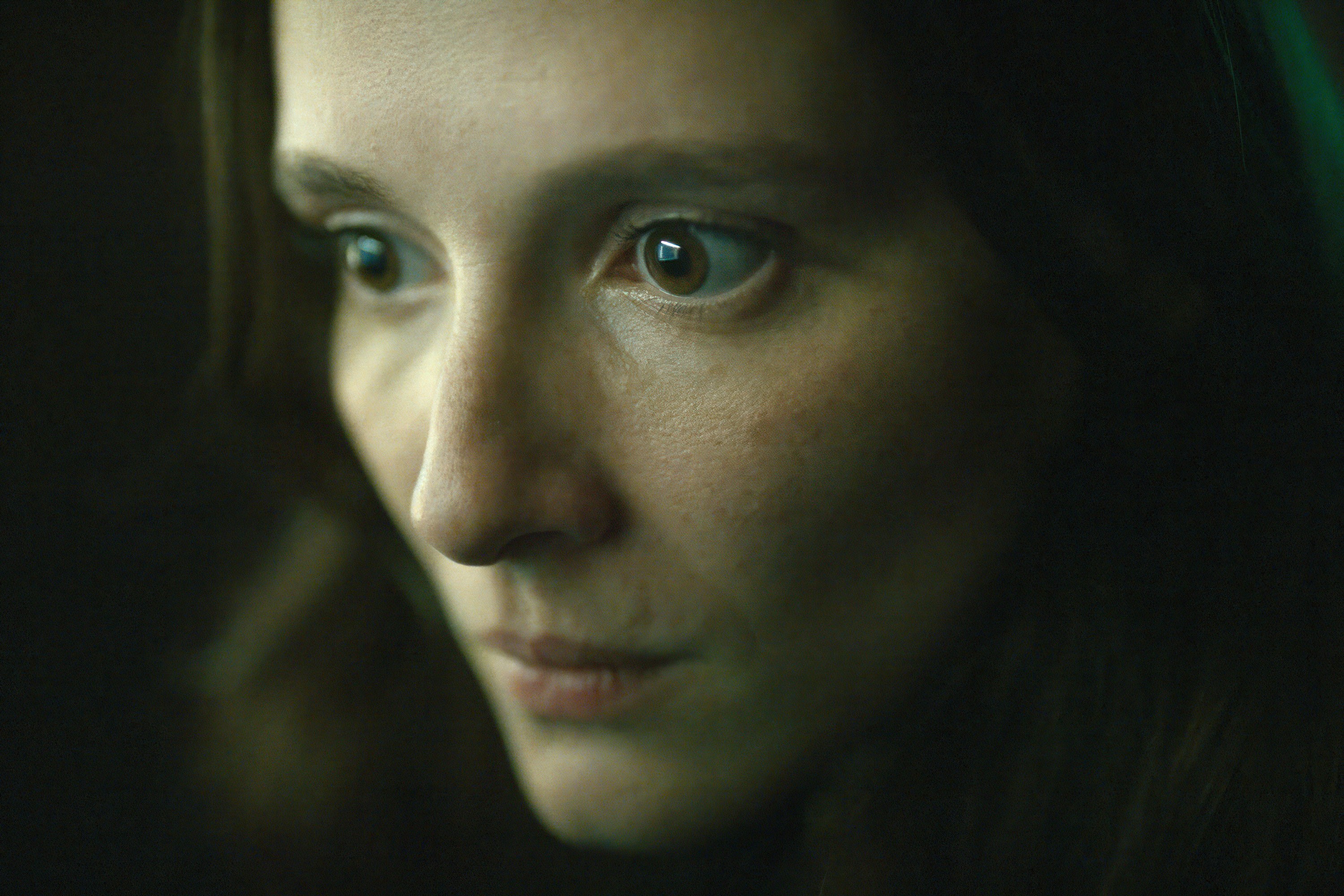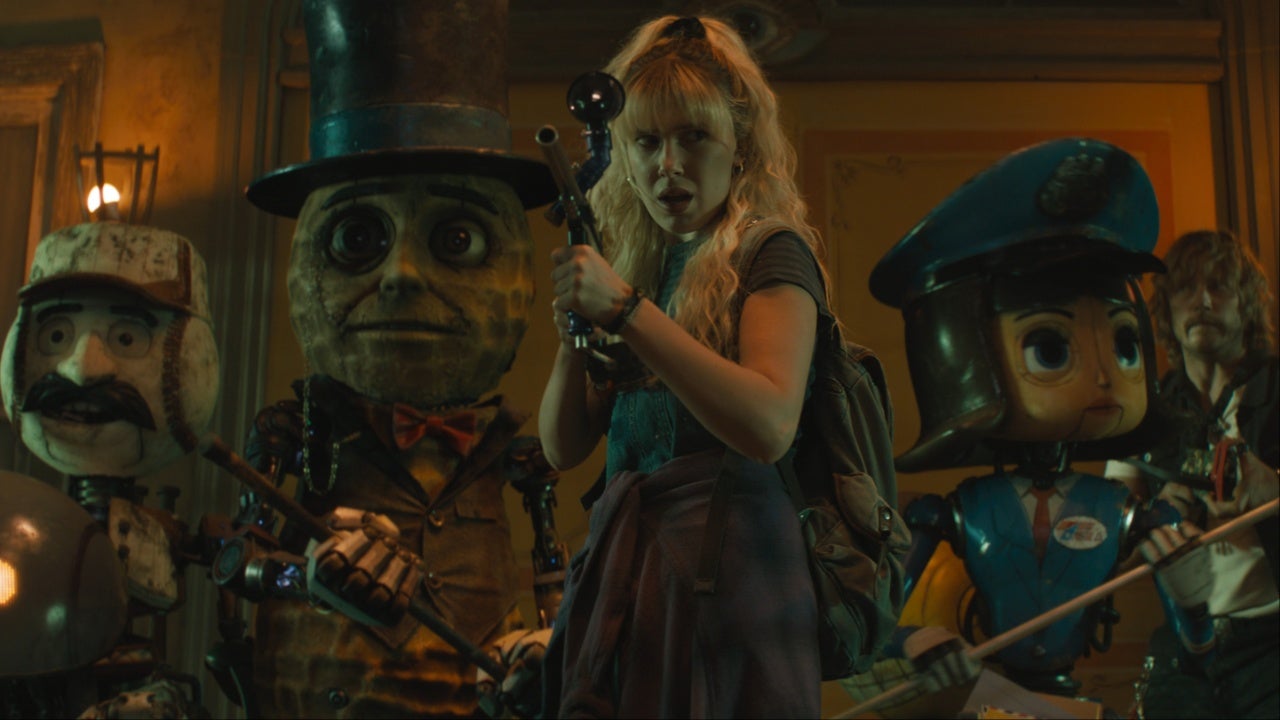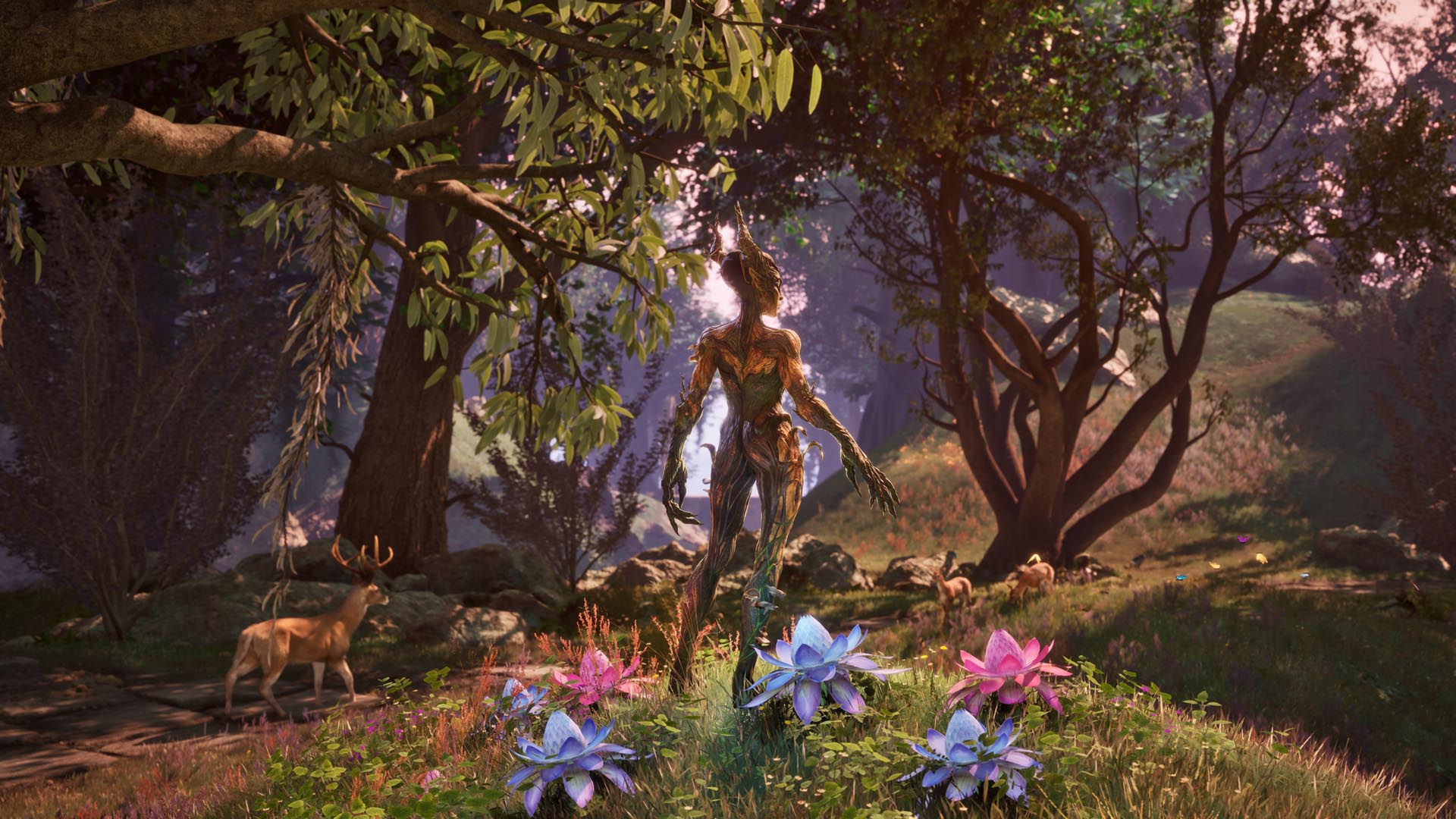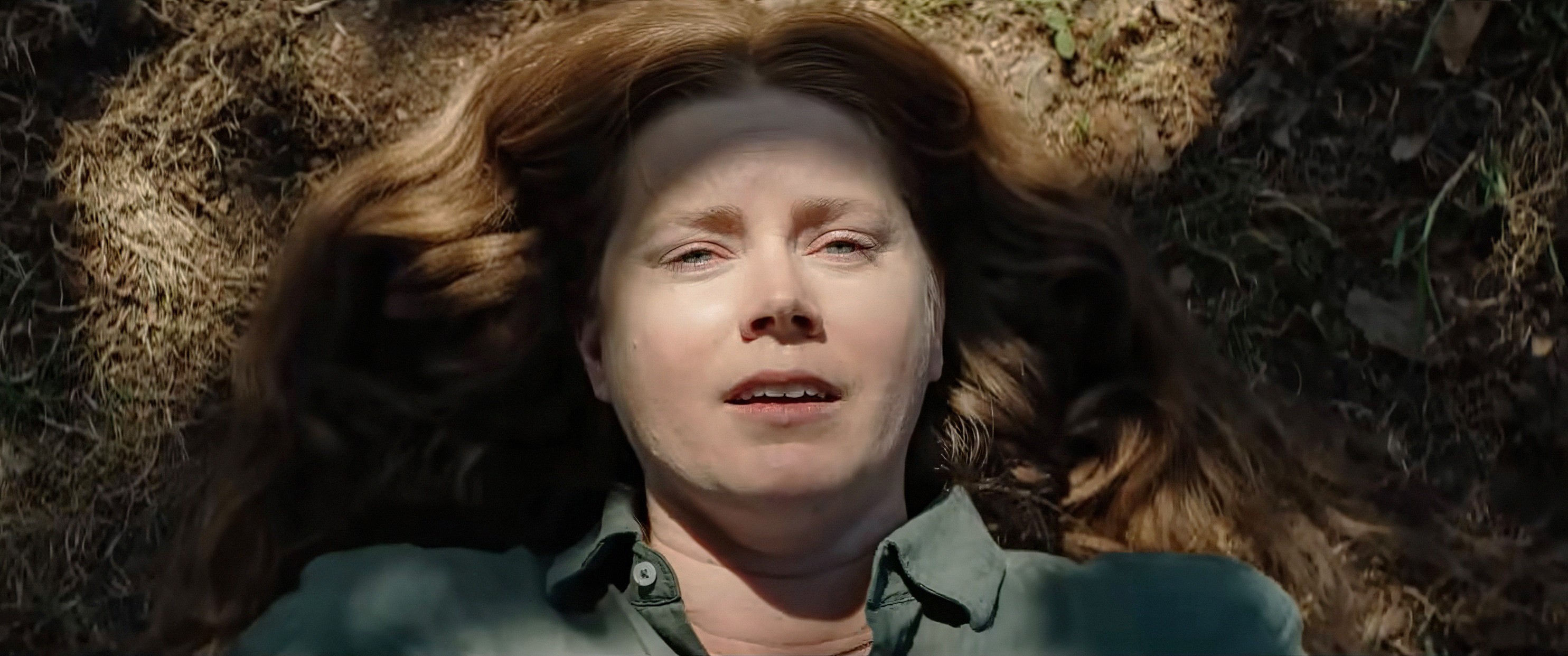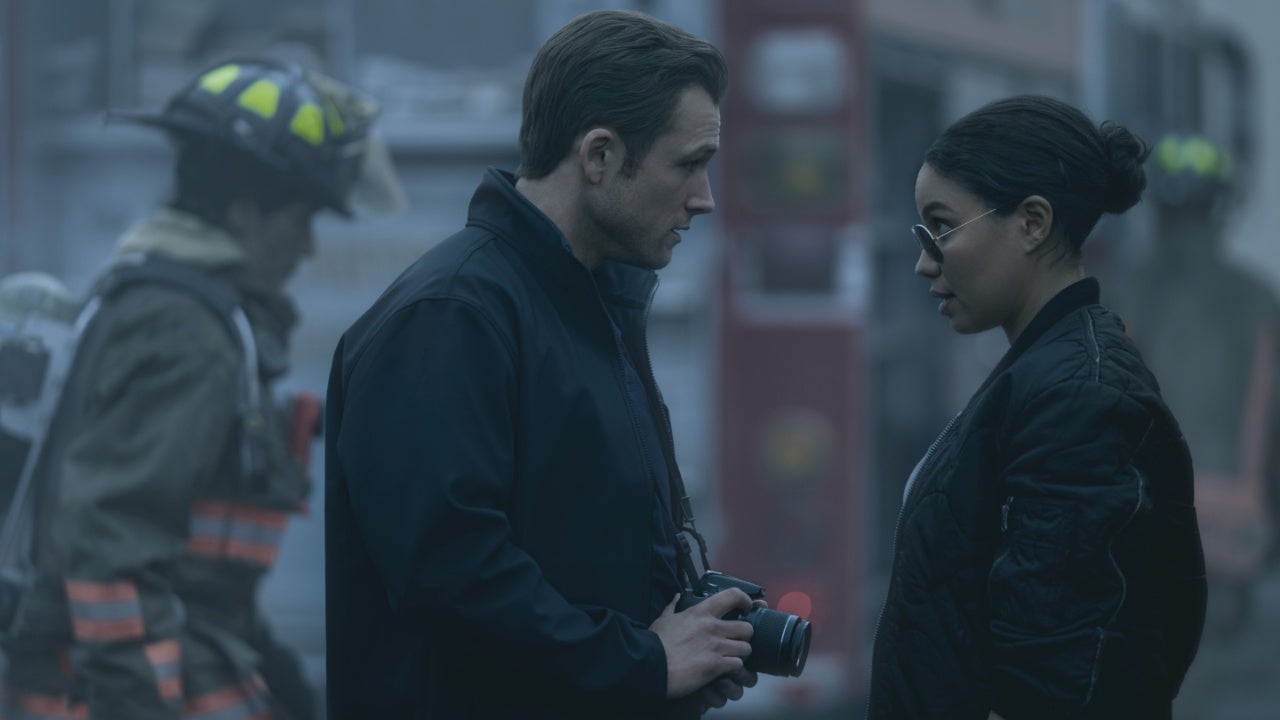
Plenty of movies come with enough ambiguity to invite discussion, debate, and spirited interpretation, but over the course of the past year or so, few of them have prompted as much conversation as Pascal Plante’s Red Rooms. And in the horror genre in particular, nothing’s even come particularly close. Plante’s thriller, following one woman’s obsession with an accused serial killer, is the rare film that makes ambiguity a central point, while still delivering a satisfying, engaging story. It gives the sense that Plante is entirely in control of his narrative — but doesn’t want to control what people think about it. The movie had a long rollout throughout 2023 and 2024, via a lengthy festival run, limited theatrical release, and VOD launch. But now that Red Rooms has hit streaming services via Shudder and AMC Plus, the conversation around it is likely to keep expanding and intensifying.
Red Rooms stars Juliette Gariépy as Kelly-Anne, a successful Montreal fashion model who introduces herself by silently walking into a courtroom for the opening arguments in the trial of Ludovic Chevalier (Maxwell McCabe-Lokos), accused of kidnapping and murdering three teenagers. The facts in the case of “The Demon of Rosemont” are graphic and horrific, and his defense attorney’s opening arguments aren’t convincing — they amount to “Maybe someone hacked Ludovic’s computer and put snuff films on it? You can’t prove they didn’t!”
But the evidence itself isn’t concrete. The perpetrator in the two digital files on Ludovic’s computer — recording the torture, mutilation, sexual assault, and deaths of two of the girls — is masked at all times. No file of the third girl’s murder has been found. It’s a sensationalistic case, full of references to the Dark Web and so-called red rooms where streamers kill people for an audience. The prosecutor and her expert witnesses hint about a secret underground world where such horrors are common.
But what does all this have to do with the blank-faced fashion model who shows up to the proceedings every day, sleeping in an alley near the courtroom to make sure she’s in line for admission early every morning? Plante spends the entire movie teasing that out, one unsettling development at a time.
What’s fascinating about Kelly-Anne throughout the trial, and her increasingly calm but unnerving behavior whenever she leaves the courthouse, is how little she fits into any of the expected tropes or profiles for a character in her position. Red Rooms’ biggest mystery isn’t whether Ludovic is guilty (though Plante keeps that question for the end as well), it’s who Kelly-Anne really is and what she wants. Does she have a personal connection to one of the victims, or to Ludovic? Is she just one of those unfortunate groupies who flock to serial killers? Given her clear technological prowess, is she planning (or has she already committed) similar crimes herself? The deliberate, clinical procedural aspects of Red Rooms leaves conscious space for viewers to speculate about where it’s all going, right up to a moment of mesmerizing shock.

But the reason the movie has spurred so much conversation is because there are so many ways to read what happens next, and so much nuance and mystery around Kelly-Anne’s actions and choices. The film has two clear tracks — what she does, which is unambiguous and leads to the story’s clear conclusion, and why she does it, which has sparked a lot of energetic conversation. (The online version has mostly been of the “It’s obvious that X is true!” “No, it’s absolutely obvious that Y is true instead!” variety. But what are you going to do, it’s the internet.) Parsing out exactly what you think, preferably with someone whose tastes and opinions you trust, is half the draw of this movie.
The other half is Plante’s meticulous execution. In spite of the grotesque details of the Demon’s crimes, Red Rooms isn’t a gory movie, and it isn’t a conventional horror movie, full of sudden scares and shocks. It’s a chilly, precise film, shot with sharp lighting and precise framing that’s drawn comparisons to Stanley Kubrick’s work. (Albeit without the elevator full of blood that gives The Shining one of its biggest set-pieces.) Gariépy gives Kelly-Anne a flat affect that some have interpreted as a sign of neuroatypicality, and others as an expression of her singular obsession with the case. Put together, that approach keeps viewers at an emotional distance in spite of the movie’s charged emotional content, and only gradually lets them in as new, more colorful characters complicate the story.
Kelly-Anne is drawn without the usual sense of horror-movie protagonist sympathy — for much of the movie, she’s a function rather than a hero, a seeming cipher who can only be analyzed through action. Plante and Gariépy never let the audience identify with her solely because of charisma — they’re forced to consider each and every one of her actions as part of the puzzle, and land on their own perspectives, both about why she pursues her particular course of action and how viewers should feel about it. In a Reddit AMA, viewers asked a lot of questions about her, and Plante gave some hints, but made it clear that he wants people to interpret her for themselves.
And that invitation to interpretation turns out to be as satisfying as the movie’s queasy shocks and luring mysteries. Some horror movies leave the audience with a sense of shock and catharsis that hits hard, then fades quickly. Red Rooms lingers. It’s a strange but appealingly distinctive project — a movie that’s best experienced not just in the moment of viewing, but for days or weeks of thoughtful unraveling afterward.
Red Rooms is now streaming on Shudder and AMC Plus, and is available for online rental or purchase on Amazon, Fandango, and similar digital platforms.
Source:https://www.polygon.com/what-to-watch/509522/red-rooms-movie-watch-streaming-shudder-best-horror-thriller-dark